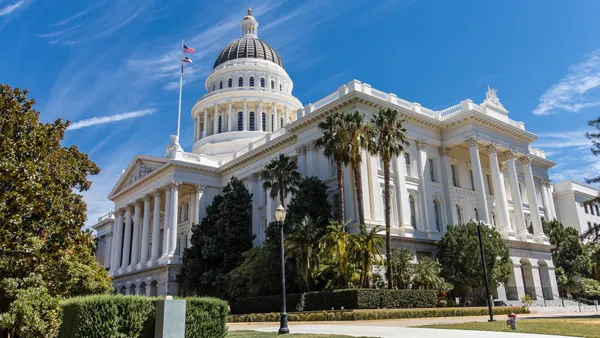Dive Brief:
- New Hampshire has enacted a public-private partnership (P3) law that allows the state to enter into P3s for infrastructure and transportation projects, according to Ballard Spahr LLP.
- The ability to harness the financing, timesaving and expertise advantages of a P3 is expected to increase infrastructure and transportation projects in the state, as well as further Gov. Maggie Hassan's goal of connecting Nashua and Manchester to Boston via commuter rail.
- The new law makes provisions for two P3 structures only - design-build-finance-operate-maintain (DBFOM) and design-build-operate-maintain (DBOM), but each project must still be approved through New Hampshire's 10-year transportation improvement program.
Dive Insight:
The rule does not allow for P3s for other public projects like conference center or hospitals, but it requires a commission be formed to evaluate all proposed P3 projects.
In January, Hassan proposed a $3.7 billion, 10-year transportation plan that would see to the repair of bridges, complete an Interstate 93 widening project and resurface an additional 200 miles of road annually. The federal government's portion of the price tag is $2.56 billion. Hassan is also holding fast to her goal of a commuter rail service to Boston, even though the legislature denied her $4 million for a rail feasibility study. Hassan maintains that a rail system is necessary to industry and the requisite talent pool.
In May, a Bipartisan Policy Center report called on the public sector to utilize private industry to address the country's crumbling infrastructure. The report said that the local, state and federal governments should try to take advantage of the private sector's access to capital and expertise in construction, design and maintenance. Moody's also gave P3s a nod in its Investors Service report in May when it said the structure was poised for a U.S. surge. The company said conditions in the U.S. were P3-friendly and that the country provided a successful project-delivery environment.













